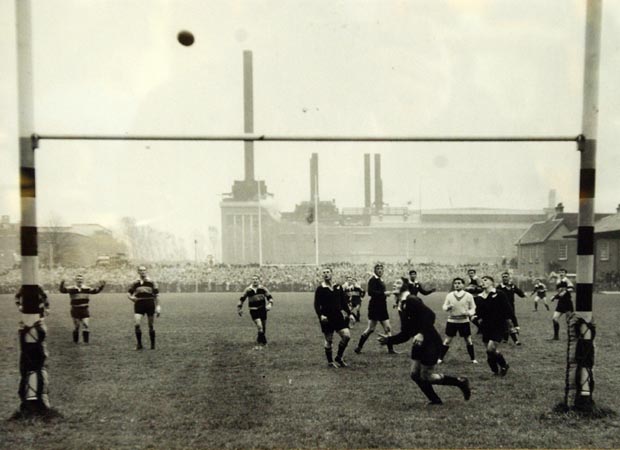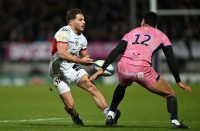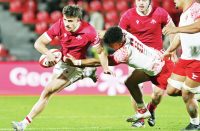 Of all the villages in Britain, only one can lay claim to a dual role in a victory over the All Blacks like no other since the Second World War.
Of all the villages in Britain, only one can lay claim to a dual role in a victory over the All Blacks like no other since the Second World War.
Deri may not amount to much more than a speck on the scarred landscape of the South Wales coalfield but Newport could never have beaten New Zealand without a couple of boys from the little place in the Darran Valley – Brian Price and John ‘Dick’ Uzzell.
Price, the captain of Newport and Wales, arrived before the Second World War. Uzzell, born halfway through it, dropped the goal that beat the All Blacks on that soggy autumn Wednesday afternoon in 1963. The Kiwis have lost in Wales since, at Llanelli nine years later but Rodney Parade 51 years ago is the only place on British soil post-war where they have been reduced to a pointless defeat.
France beat them by the same score, 3-0, in Paris in 1954 and Munster won by four times as many in Limerick in 1978. Newport managed it in between because of something Uzzell learnt as a boy on the rugby field in Deri, home of the Broncos.
The field is still there but the village’s grand old boys will be saddened to learn that the rugby team has gone, another depressing example of the decaying state of the game, of how the green of the grass-roots is turning to dust.
Deri began the season, as usual, in Division 5 East of the Welsh League. They lost their first five matches and then lost something far worse – the team. Their fixture list has been abandoned amid fears that after serving the community for more than half a century, the club itself will fold.
“It just seems as if the love of rugby within the village has gone,” says club secretary Elizabeth Barrett whose family is steeped in the game. “It’s hard and harder still at our level where we don’t have any big sponsors.
“Kit-wise, we have to pay for everything ourselves. We couldn’t afford to pay any of our players but there are clubs who do, even at our level and that has an effect.
“We were so short of players when the season began that we had to get one to come out of retirement and he hadn’t played for ten years. I even allowed my husband to help out but then it just became impossible to keep going.
“We didn’t get a lot of funding from the WRU and now we’ve lost our core grant for next season which is around £2,500. We’ve got such a large building to heat that our maintenance bill is about £2,000-a-month.
“The club is still open with U8’s and U9’s. We also have a girls’ team. We are doing everything in our power to keep the club going but it’s a real struggle.”
Deri RFC has called an emergency meeting for Monday to decide whether it has a future. Ominously, they are far from being on their own in being unable to fulfill their fixtures.
Others, like Newbridge United and Penygroes, have suffered the same fate. Anecdotal evidence indicates that many more, far higher up the league pyramid, face a weekly struggle to raise a team despite in some cases having abandoned second XV’s.
Deri’s predicament is symptomatic, therefore, of a wider malaise, an example of an accusation that the WRU is allowing the game to rot, as made in The Rugby Paper last week by David Moffett in his One Wales campaign aimed at his becoming WRU chairman.
The WRU say they have invested £20m in the grass-roots game over the last six years but the decay is still widespread. The bigger picture, according to one marketing expert, is that Welsh club rugby in its current state of neglect cannot survive for much more than five years.
Ben Jeffreys, commercial director for Pontypool, has seen it for himself. His father, Peter, rescued the famous old Gwent club from being wound up with a £100,000 gift to wipe out debts following Pooler’s unsuccessful legal fight against the WRU over their relegation from the Premiership two years ago.
“In its present state, I think the club has ten years left, at the best,” Jeffreys, junior, says. “Without benefactors, it wouldn’t exist. There’s such a big disconnect between the international game and the club game.
“There is no marketing strategy at Premiership, Championship and other levels. And there doesn’t seem to be anybody at the WRU saying they will address these issues.”
Deri should have been in action at their Mill Road ground yesterday in a home League fixture against Usk. The last of the Broncos bolted months ago, leaving behind a club without a rugby team and there will be plenty afraid they don’t have the ghost of a chance of finding another.























